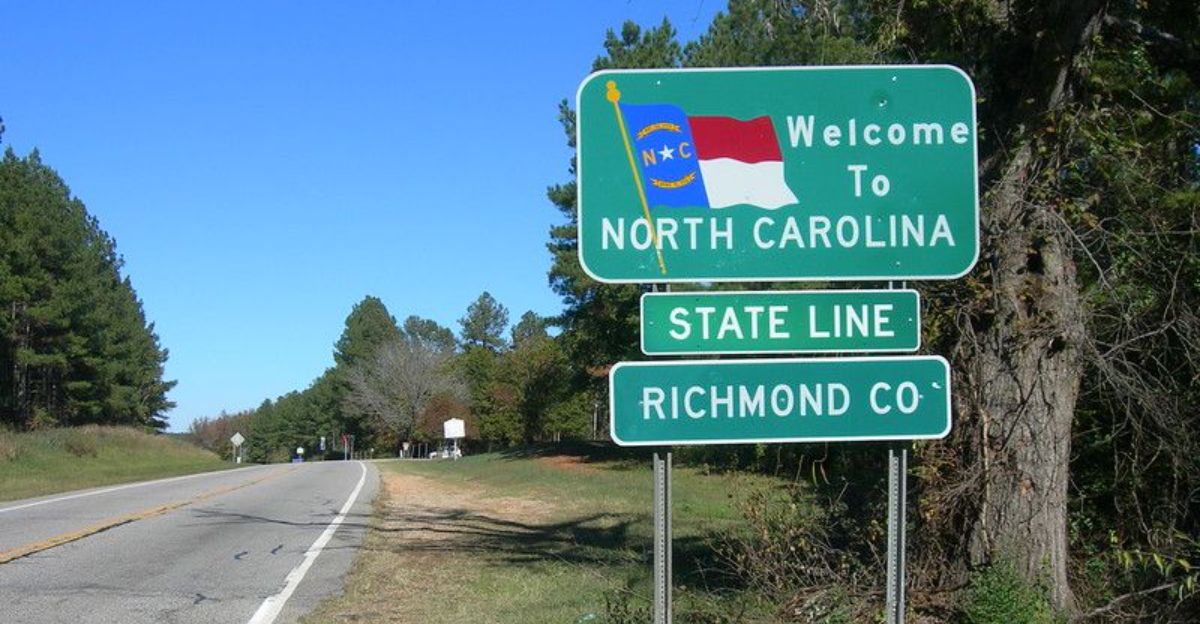
North Carolina, known for its scenic landscapes and rich history, also houses some surprising legal quirks. Many travelers might be unaware of these unusual statutes, which provide a unique glimpse into the state’s cultural and historical tapestry.
Let’s delve into these intriguing laws and uncover their origins and continued existence.
North Carolina’s Hidden Legal Oddities
Imagine visiting North Carolina and discovering that singing off-key is legally problematic. While this might sound like a joke, it’s a reality in some parts of the state. In an attempt to maintain public harmony (literally), laws were once enacted to ensure public performances remained melodious.
This odd regulation likely dates back to a time when public performances were a primary source of entertainment, and maintaining quality was paramount. Today, enforcement is more symbolic than practical, serving as a reminder of the state’s vibrant past.
Tourists might chuckle at such a law, but it speaks volumes about the value North Carolinians once placed on musical arts. Although rarely cited, it remains an amusing tidbit for visitors exploring the state’s colorful legal history.
Why Some Rules Never Disappeared
Ever wondered why certain outdated laws persist? In North Carolina, some are maintained purely for their historical significance. Consider the rule prohibiting plowing a cotton field with an elephant. While it seems outrageous today, it underscores the state’s agricultural roots.
Such laws, although obsolete, remind us of a time when agriculture was king and quirky scenarios needed addressing. Their survival in the modern legal system is often due to the sheer cost and effort of formally repealing them.
For visitors, these remnants offer a nostalgic peek into a different era. They reflect a whimsical side of history that persists, more for its charm than practical enforcement. It’s a unique trait that adds character to North Carolina’s legal landscape.
The Laws Tourists Break Without Realizing
Visitors may unknowingly break laws simply by engaging in typical tourist activities. Picture this: drumming in a public park could lead to trouble in certain areas. Such laws, intended to maintain peace, are relics of older times when community gatherings were more regulated.
It’s unlikely violators will face severe punishment today, yet the law’s existence surprises those unaware of local ordinances. This regulation highlights how communities once prioritized quietness in public spaces.
For tourists, these peculiar rules serve as conversation starters. They offer insight into how North Carolina’s local governments balance tradition with modernity, ensuring the past is not forgotten, even if it occasionally drums up confusion.
What These Rules Reveal About Local History
North Carolina’s quirky laws open a window into the past, revealing societal norms that shaped the state. Take the prohibition of rollerblading on the roads. This law originated when automobiles first appeared, and rollerblades were considered a significant hazard.
Despite technological advances, these rules serve as historical markers. They reflect a time when urban planning was evolving and public safety needed safeguarding in creative ways.
Visitors often find these laws amusing, yet they offer a deeper understanding of the state’s development. They illustrate the adaptation to new inventions, highlighting the story of a community transitioning into modernity while holding onto its heritage.
How Towns Handle Outdated Codes
In North Carolina, many towns grapple with outdated codes. Local councils are tasked with deciding whether to repeal or let them stand as historical curiosities. The infamous ‘no elephant plowing’ law persists in some areas primarily for its nostalgic value.
While most modern lawmakers find these laws impractical, they often choose to leave them untouched due to their harmless nature and the charm they add to public discussions. They provide a touch of whimsy, reflecting the community’s character and historical journey.
Tourists might be intrigued by how seriously these communities handle their legal relics. They represent a blend of respect for tradition and acknowledgment of the humorous side of history, a testament to the state’s enduring spirit.
Locals’ Reactions to Curious Visitors
Locals in North Carolina are often amused by visitors’ reactions to their unusual laws. These quirky regulations provide endless storytelling opportunities in local diners and gatherings, where old-timers share tales of how these laws came to be.
Residents take pride in their unique legal landscape, viewing it as an integral part of their cultural identity. For them, these laws are more than just rules; they are part of the state’s folklore.
Tourists may find themselves warmly received as they inquire about these laws. Such interactions foster a deeper connection with the locals, giving visitors a genuine taste of North Carolina’s hospitality and rich heritage.
What Travelers Should Know Before Exploring
Before embarking on a journey through North Carolina, travelers should be prepared for more than just breathtaking scenery. The state’s unusual laws might surprise, but they also enrich the travel experience.
Understanding these unique rules provides context for the local culture and history. While enforcement is rare, awareness can prevent any unintentional legal faux pas and adds a layer of enjoyment to the trip.
Exploring North Carolina with knowledge of its quirky laws allows for a more immersive experience. It invites tourists to engage with the state’s narrative, turning a simple visit into an opportunity to connect with the community and its storied past.
Dear Reader: This page may contain affiliate links which may earn a commission if you click through and make a purchase. Our independent journalism is not influenced by any advertiser or commercial initiative unless it is clearly marked as sponsored content. As travel products change, please be sure to reconfirm all details and stay up to date with current events to ensure a safe and successful trip.